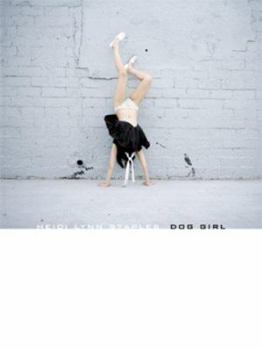Dog Girl
Poetry. In DOG GIRL, Heidi Lynn Staples dances on a tightrope strung between sense and nonsense, between adulthood and childhood, and the lyricism of her verbal acrobatics confounds and delights in the way only genuine poetry can. Staples takes the existing lexicon and wrenches words into position, then commands them to be other than what they were, much to the joy of her astonished reader --Christopher Kennedy. The truth and beauty welcomed in DOG GIRL is that nothing lasts, nothing is complete, and nothing is perfect. Staples continues the Joycean, Steinian and even Shakespearean wordplay evident in her first book, channeling it through a dizzying collection of formal structures-Janimerick through Decemblank, with haiku, sonnets, prose poems, nursery rhyme, and more. She draws her explicit subject matter from her own passionate and tumultuous marriage, her profound engagement with the nonhuman world, and a core-deep grief from a late-term pregnancy loss. Staples previously authored GUESS CAN GALLOP, which is also available at SPD.
Format:Paperback
Language:English
ISBN:0916272958
ISBN13:9780916272951
Release Date:January 2007
Publisher:Ahsahta Press
Length:66 Pages
Weight:0.35 lbs.
Related Subjects
PoetryCustomer Reviews
1 rating
For those who like to play with words...
Published by Thriftbooks.com User , 15 years ago
Take a minute or so to think about your assumptions of the English language--how certain words or phrases should sound, how our thoughts shape what you want to say, and finally, how you solidify those thoughts into substantial, meaningful, easily-understandable words and phrases. Hopefully this process brings you to an articulate final product. Sometimes, however, finding the right words can trouble just about anyone--I am guilty of this, and I suspect many normally articulate individuals are, at times, guilty of this as well. Sometimes words come out that maybe shouldn't have, words that sound similar to those which we originally wanted to use. In comes Heidi Lynn Staples, a poet who lets those kinds of words come in. Of course, her writing indicates that rather than being mistaken, she recognizes that something in the subconscious part of our minds makes us confuse those words for a reason. We say one thing but mean something else entirely; either we mean it but do not know how to express it, or we do not want to confront situations that we find uncomfortable. Staples' poems, although from a female perspective (mainly mother, sister, and wife), raises questions about what everyone thinks about women on the inside but are too afraid or too timid to deal with in the real world. Many of the poems in this collection are made up of words that have been broken down to their syllables; the syllables are then replaced with monosyllabic sound-alike words. For example, "make believe" becomes "make be leaf" (Septemijo, 23); "adorable" becomes "a door able" (Damsel in Undress, 30); "baby" becomes "bay of be" (Reddening Devout of the House, 9). Other times, Staples strings together chains of rhyming words, as if she can't decide which word to use, so she uses them all--my favorite example of this comes from Aprovisational (11); "is like an uber tuber super dooper doplar radar". She also employs a technique of using numerous, unexpected, untraditional patterns of thought and emotion that are continually surprising to the very end of the collection. Although sometimes the unfamiliar syntax and somewhat juvenile grammar seems to cause more uncertainty than is necessary, a pattern emerges that hopefully forces readers to revert to a less-cluttered, less-modern frame of mind. She brings her audiences back to the kind of `blank slate' of childhood years--before political-correctness, before worrying you might get sued for saying the wrong thing to the wrong person--without all of the preconceived notions of what or how things should or shouldn't be, what women can and can't be, and how people can or can't treat or talk to each other. Staples gives her audience the chance to question what we take for granted--mothers, wives, girlfriends, siblings, for example--to question what we may know is wrong or broken but are too comfortable to work towards fixing. For example, in "Happily Severed Sister" (34) she writes "We held each other closed, promising / we'd be





